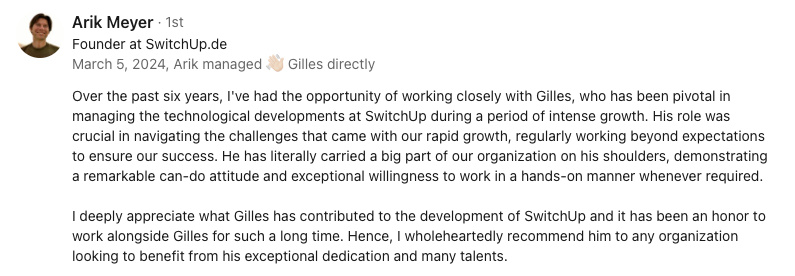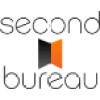Abstract:
The article discusses the importance of building digital trust in today's tech-driven world by emphasizing ethical leadership and organizational culture. It highlights the critical role of leaders in cultivating environments of integrity and transparency, focusing on transformational leadership as a model that aligns company values with employee vision. The article contrasts this with transactional and laissez-faire leadership styles, noting their limitations in fostering long-term trust. It stresses the significance of empowering teams through training in cybersecurity, data privacy, and digital ethics to prepare them for trust-related challenges. By fostering a culture of involvement, autonomy, and open communication, companies can enhance their trustworthiness. The article also underscores ethical decision-making frameworks like the Triple Bottom Line and B Corporation Certification, which align business practices with social and environmental responsibilities. Success stories from startups like Ecosia, ProtonMail, and Doconomy illustrate how transparency, privacy, and accountability can build strong digital trust. Lastly, examples from European startups such as Reaktor, Wise, and Tutanota show how transparent practices, customer engagement, and security audits can enhance user trust and satisfaction, providing valuable insights for other companies aiming to integrate ethical practices into their strategies.
In the digital age, building online trust is crucial. Companies are exploring ways to leverage technology and cultivate a culture rooted in ethics and honesty. Leaders play a vital role here; they exemplify ethical behavior, encouraging teams to prioritize integrity and transparency. Tech startups can address the challenges of the digital era and establish lasting trust by focusing on people. So, how do different leadership styles contribute, and what can companies do to foster digital trust? Let's explore.
Leadership's Influence on Building Digital Trust
Creating digital trust involves more than just technology; it requires establishing a solid ethical foundation within companies. Leadership is essential in nurturing an environment where trust and integrity flourish. By focusing on people, leaders in tech startups can steer their teams toward ethical and transparent practices.
Setting the Tone for Ethical Behavior
Leaders significantly impact their organization's ethics. Transformational leadership is particularly effective in aligning a leader's vision with employee values, fostering a culture of trust and ethics. These leaders inspire their teams through genuine commitment and by setting an example. Unlike transactional or laissez-faire leadership, transformational leadership creates an environment where employees feel empowered and valued, promoting ethical standards.
Transactional leadership builds trust through clear exchanges, such as rewards for achievements. While reliable, it may not foster the deep ethical commitment that transformational leadership does. It is more suited to short-term goals rather than long-term trust and integrity.
Laissez-faire leadership can lead to issues due to its lack of guidance. Without active involvement, companies might struggle with trust and ethics. Active leadership is necessary to provide direction and oversight, maintaining accountability and a robust ethical foundation. Understanding these styles helps leaders develop practices that promote digital trust.
Empowering Teams to Uphold Trust
Successful companies recognize that building digital trust is a collective effort. Empowering employees to make ethical decisions is key to maintaining honesty and transparency. Let's focus on training and creating a trustworthy culture within teams.
Training and Development
Recognizing that digital trust depends on well-prepared teams, tech companies are investing in training programs. Cybersecurity awareness is crucial. Certifications like CISSP and CEH equip employees to manage threats and protect data. Real-world practice in these programs prepares employees for digital trust challenges.
Beyond technical skills, data privacy training supports organizations under frameworks like GDPR. Programs from the International Association of Privacy Professionals keep teams informed and capable of managing privacy issues. Adhering to these standards enhances an organization's trustworthiness.
Digital ethics training is also vital. It fosters accountability and supports sound decision-making. Programs from the Center for Digital Ethics and Policy help establish a strong ethical framework, empowering employees to make decisions that align with the company's values. This training nurtures a culture where ethical conduct is second nature, fostering digital trust.
For smaller teams with limited resources, cost-effective solutions like online courses or in-house workshops can be effective ways to implement these programs.
Fostering a Culture of Trustworthiness
A culture of trust develops when employees are involved in decision-making. Engaging them in trust-building initiatives highlights their role in shaping the company. When employees feel valued, they become more committed to the company's goals and values.
Providing employees with autonomy and resources further empowers them. Autonomy boosts engagement and strengthens trust between staff and management. Empowered teams are more likely to take ownership of their work, driving innovation and resilience.
Feedback tools, such as 15Five or Lattice, enhance trust by promoting open communication. This approach helps identify challenges early, encourages improvement, and strengthens the company's ethical foundation. Together, these strategies build lasting digital trust.
The Ethical Foundations of Digital Trust
Digital startups succeed by building trust with users, rooted in ethical considerations. A strong ethical foundation is essential for startups to secure and maintain digital trust.
Ethical Considerations in Digital Trust
Privacy and data protection are central ethical considerations for digital trust. Adhering to regulations like GDPR ensures users' privacy is respected. Transparent data practices not only meet legal standards but also demonstrate a commitment to ethics, building user confidence.
Transparency in data practices fosters customer trust and loyalty. Clear communication about data practices increases user engagement and loyalty. Customers appreciate knowing how their data is used, which builds security and trustworthiness.
Empowering users with control over their data is crucial for building trust and preventing misunderstandings. When users feel in control, they are more likely to trust the company. It's important for startups to implement frameworks supporting these ethical foundations to navigate digital trust successfully.
Ethical Decision-Making Frameworks
Startups can benefit from structured approaches like the Triple Bottom Line (TBL) for ethical decision-making. Emphasizing people, planet, and profit enhances reputation and customer loyalty. This approach encourages deeper engagement with stakeholders, improving trust and satisfaction.
B Corporation Certification requires meeting high standards of social and environmental performance, reinforcing trust by demonstrating a genuine commitment to positive impact. Companies with this status often surpass peers in trust and satisfaction.
Corporate Social Responsibility (CSR) frameworks integrate social concerns, increasing loyalty and investor interest. CSR initiatives signal dedication to ethics, attracting customers and investors who value responsibility. Real-world examples of companies successfully using these frameworks can guide startups in fostering digital trust.
Success Stories in Ethical Practices
Some startups have effectively integrated ethical practices into their strategies to build digital trust. Here are a few examples:
- Ecosia: Uses ad revenue to plant trees, prioritizing transparency by sharing financials and privacy policies. This transparency has helped it gain the trust of users committed to environmental causes.
- ProtonMail: Focuses on user privacy with encrypted email services, attracting a global user base. Its dedication to data protection has earned its reputation for digital trust.
- Doconomy: Champions financial transparency and environmental responsibility, helping users track their carbon footprint. This approach appeals to eco-conscious users interested in accountability.
These examples offer valuable insights for startups aiming to integrate ethical practices into their digital trust strategies. Focusing on transparency, privacy, and accountability shows how ethical business models can align with consumer values and enhance brand loyalty.
Lessons from European Startups
Some startups have succeeded in building digital trust by focusing on transparency and user engagement. Here are some notable examples:
- Reaktor: Emphasizes open communication and transparent data practices, enhancing user trust and aligning with regional standards.
- TransferWise (now Wise): Integrates customer feedback into product development, ensuring services meet user needs and expectations. This feedback loop maintains high user satisfaction and trust.
- Tutanota: Builds trust through regular independent security audits. By demonstrating transparency and proactive security measures, it maintains its promise of privacy to users.
These examples highlight the importance of ethical practices in building digital trust:
- Transparency and communication: Companies like Reaktor emphasize transparent data practices.
- Customer engagement: Wise builds trust through feedback integration.
- Security and integrity: Tutanota reinforces trust with regular audits.
Using these strategies, startups can effectively improve digital trust, fostering customer loyalty and competitive advantage in the market.
Building digital trust is crucial for tech startups aiming for long-term success. By adopting transformational leadership, companies can create a culture of ethics and transparency that forms the basis of trust. This approach aligns employee values with company goals and empowers teams to own ethical practices. Through thorough training in cybersecurity, data privacy, and digital ethics, employees become skilled at protecting information and making informed decisions.
Creating a trustworthy culture through engagement, autonomy, and feedback builds a strong, transparent organization. As seen in success stories like Ecosia and ProtonMail, ethical practices can greatly boost user trust and brand loyalty. How will your organization apply these insights to promote digital trust?














